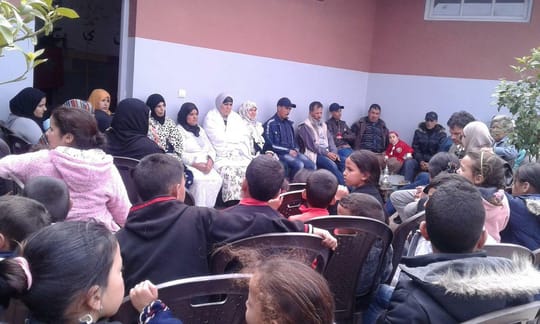Women Between the past and the Present in Akrich Region

On Women’s International Day, the High Atlas Foundation visited the Association Assalam for Development in Douar Achbarou. This village is located in the Rural Commune of Tameslouht, which is only 20 kms away from Marrakech.
Beforehand, the activities in this association were run by men only, but since last October, women were integrated into the association and started to work alongside their male peers. The area, like many other ones in the High Atlas Mountains, is traditional, and it was a huge step for these women to get out of their comfort zones and work inside this cooperative.
The idea of creating women’s cooperative was first discussed together with Mrs. Batoul, the president of Association Amal for Development of Women and Children in Achbarou village. Amina Hajjami, Project Director at HAF, prepared a folder and submitted it on the 10th of October to OCP which financed the looms and other materials for the cooperative. As mentioned earlier, women were integrated in the association of men where they occupied three rooms to embroider, crochet and weave carpets. Additionally, a part of the carpet-making room is devoted to learning where women develop their literacy skills, and another room nearby is used for a preschool class.
The women warmly welcomed us and were keen to show us what they made during these five months. We can divide these women’s activities into three groups according to their age: older women who craft traditional carpets, middle aged women who make crochet products and young women who learn tailoring. It is good to mention that there is interaction between women from Douar Akrich who make handicrafts (carpets mainly) and other women from the Achbarou, who crochet.
In the courtyard, we gathered with both men and women from this cooperative to drink tea. At the same time, the women thanked the presidents of the cooperative, Mr. Said Idmansour and Abderrahim Badah, for giving them this opportunity to work inside their association. The men as well appreciated the step which women are taking to improve themselves on both financial and personal levels. “Unlike the past, we have freedom now; for example we can now go to the market, while it was a privilege that only men could have.” said one of the women. Doriss, a German lady who owns an hotel in the neighbourhood, explained how she has always been against the idea that women shall stay at home. “ Women need an outlet away from their houses,” said Doriss.